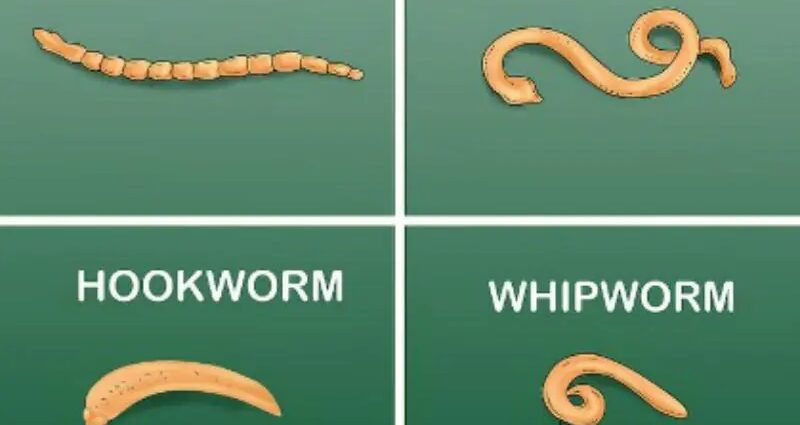Contents
What are hookworms, the worms that affect cats?
Hookworms are parasites belonging to the group of roundworms. They live in the small intestines of dogs and cats. Discover the causes and modes of contamination of its parasites as well as the various treatments and solutions to prevent the risk of infestations.
What are hookworms, these parasites of the small intestine?
Hookworms are parasites belonging to the group of roundworms, nematodes. They live in the small intestines of dogs and cats. They have a mouth with large teeth allowing them to cling to the intestinal wall and damage it to feed on the blood of their host. Cats in Europe can be infested with two species in particular: Ancylostoma tubaeforme most often and Uncinara stenocephala, more rarely.
What are the causes and modes of contamination?
Adult worms in the small intestine lay eggs which are passed with the stool. Once on the ground, these eggs turn into larvae within a few weeks. Other cats are therefore likely to infest by ingesting these larvae, at the same time as contaminated food. Hookworm worms can also parasitize felines through their prey. They actually infest rodents which are eventually hunted and eaten. Finally, some species of hookworms like Uncinaria stenocephala have the ability, once on the ground, to penetrate cats’ skin and contaminate them percutaneously.
Is there a risk of contamination of human beings?
Be careful, hookworms can also infect humans. The modes of contamination are the same. Thus, in the event of contact with cats, it is essential to ensure that you wash your hands regularly. Likewise, it is better to limit cats’ access to vegetable gardens and to wash fruits and vegetables well before consumption. For any question, the general practitioner remains the preferred interlocutor.
What are the consequences for infested cats?
Signs associated with a hookworm infestation are usually weight loss, a dull coat, and sometimes blackish diarrhea, with digested blood. In some cases, anemia is observed. Indeed, the worms cause bleeding of the intestinal wall which causes a lack of red blood cells.
In addition, other signs are caused by the migration of larvae during percutaneous contamination. Thus, itching is noted at the point of entry of the larvae. These dig tunnels in the cat’s skin, on the areas in contact with the ground. Dermatitis is therefore observed, generally in the legs. The larvae then migrate through the blood vessels to the lungs and then the trachea. They are then swallowed to reach the digestive tract. During their migration in the respiratory tree, cats can therefore present with a cough. This mode of contamination remains rare in cats.
The most fragile animals are the most likely to develop severe forms. The consequences of hookworm infection can be serious in kittens. They often have a swollen belly and stunted growth. Massive infestations are sometimes fatal.
How to diagnose hookworm?
The definitive diagnosis can be made by your veterinarian by observing the eggs through a stool exam. However, egg shedding is not constant, and a negative result does not mean that there are no worms in the intestine. Rarely, some adult worms are shed with the droppings and can be observed directly.
What treatment?
In case of proven infestation or clinical suspicion, an antiparasitic treatment, commonly called dewormer, will be prescribed by your veterinarian. Several molecules and formulations are marketed for cats, depending on their age and weight.
The current recommendations are based on systematic treatments in young animals, because of the greater risk incurred in the event of a massive infestation. It is therefore recommended to deworm kittens every 2 weeks, between 2 and 8 weeks of age, then every month, up to 6 months. The rate of subsequent treatments will have to be adapted according to the lifestyle of each cat, on the advice of a veterinarian. Appropriate deworming protocols will also be prescribed for cats during gestation, on veterinary advice.
Prevention
The prevention of hookworm infestations is based on simple hygienic measures.
In cats with access to the outdoors, it is advisable to collect the stools regularly in order to avoid the proliferation of larvae on the ground. Obviously, contamination by ingestion of contaminated prey cannot be prevented. This is why regular antiparasitic treatments are recommended.
In indoor cats, it is essential to maintain a clean litter box by removing the stool and cleaning the litter box regularly. The risk of infestation is obviously lower if the cat does not hunt and eats only processed foods. However, infestations are still observed in indoor cats and antiparasitic treatments may be indicated.
Hookworms are generally mild infestations in adult cats. However, the increased risks in kittens and the risk of human contamination make their treatment and prevention essential for the health of the household. Finally, controlling parasite infestations is also crucial in the event of a chronic illness or chronic digestive disorder in your cat. For any additional information, consult your veterinarian.











Maoni yangu nikwamba hata kama hujapata minyoo kuna zingine ndani ya tumbo